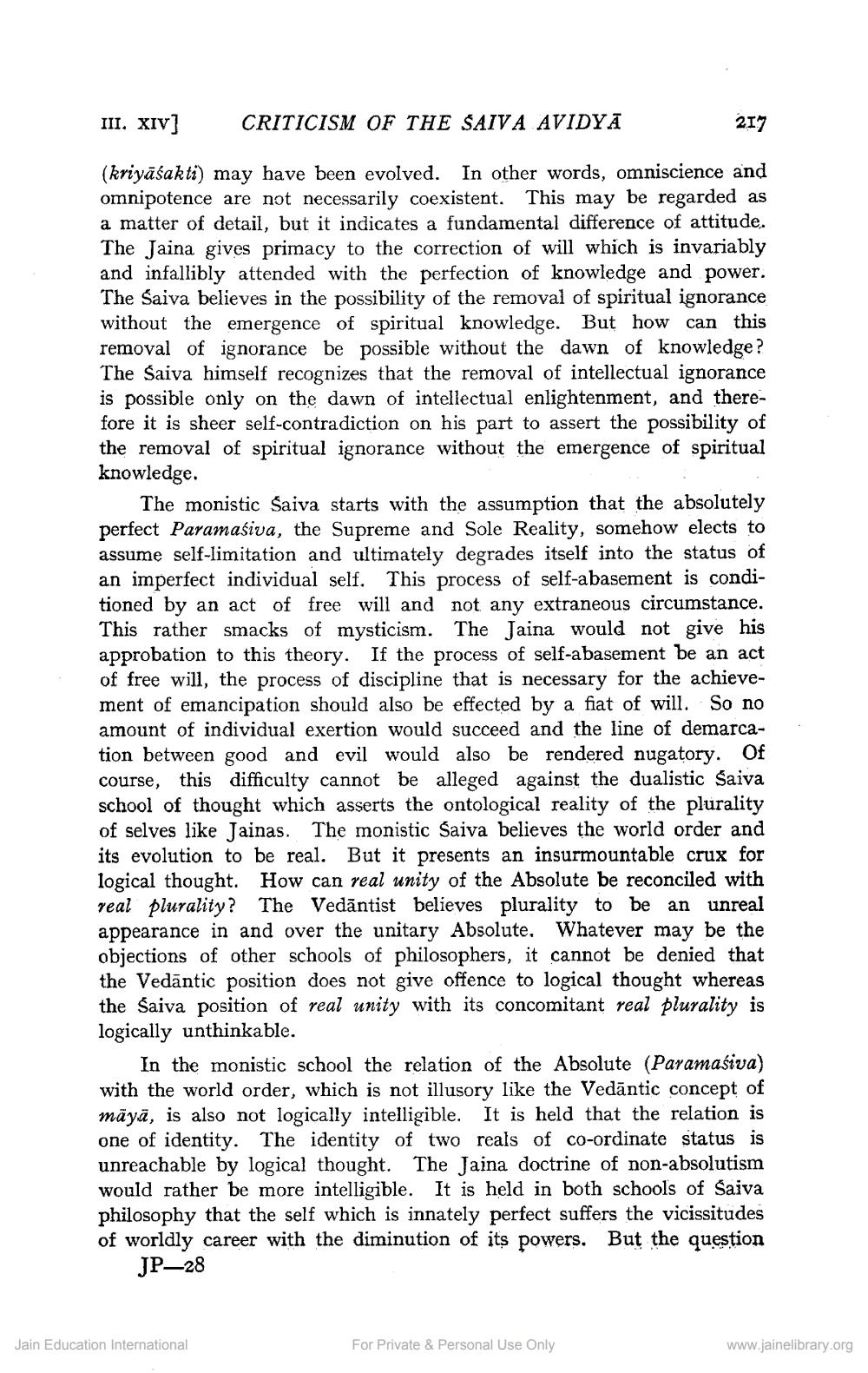________________
III. XIV]
CRITICISM OF THE SAIVA AVIDYA
217
(kriyāśakti) may have been evolved. In other words, omniscience and omnipotence are not necessarily coexistent. This may be regarded as a matter of detail, but it indicates a fundamental difference of attitude. The Jaina gives primacy to the correction of will which is invariably and infallibly attended with the perfection of knowledge and power. The Saiva believes in the possibility of the removal of spiritual ignorance without the emergence of spiritual knowledge. But how can this removal of ignorance be possible without the dawn of knowledge ? The Saiva himself recognizes that the removal of intellectual ignorance is possible only on the dawn of intellectual enlightenment, and therefore it is sheer self-contradiction on his part to assert the possibility of the removal of spiritual ignorance without the emergence of spiritual knowledge.
The monistic Saiva starts with the assumption that the absolutely perfect Paramasiva, the Supreme and Sole Reality, somehow elects to assume self-limitation and ultimately degrades itself into the status of an imperfect individual self. This process of self-abasement is conditioned by an act of free will and not any extraneous circumstance. This rather smacks of mysticism. The Jaina would not give his approbation to this theory. If the process of self-abasement be an act of free will, the process of discipline that is necessary for the achievement of emancipation should also be effected by a fiat of will. So no amount of individual exertion would succeed and the line of demarcation between good and evil would also be rendered nugatory. Of course, this difficulty cannot be alleged against the dualistic Saiva school of thought which asserts the ontological reality of the plurality of selves like Jainas. The monistic Saiva believes the world order and its evolution to be real. But it presents an insurmountable crux for logical thought. How can real unity of the Absolute be reconciled with real plurality? The Vedāntist believes plurality to be an unreal appearance in and over the unitary Absolute, Whatever may be the objections of other schools of philosophers, it cannot be denied that the Vedāntic position does not give offence to logical thought whereas the Saiva position of real unity with its concomitant real plurality is logically unthinkable.
In the monistic school the relation of the Absolute (Paramasiva) with the world order, which is not illusory like the Vedāntic concept of māyā, is also not logically intelligible. It is held that the relation is one of identity. The identity of two reals of co-ordinate status is unreachable by logical thought. The Jaina doctrine of non-absolutism would rather be more intelligible. It is held in both schools of Saiva philosophy that the self which is innately perfect suffers the vicissitudes of worldly career with the diminution of its powers. But the question
JP_28
Jain Education International
For Private & Personal Use Only
www.jainelibrary.org




